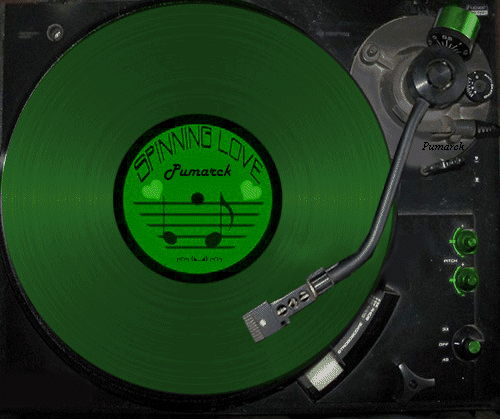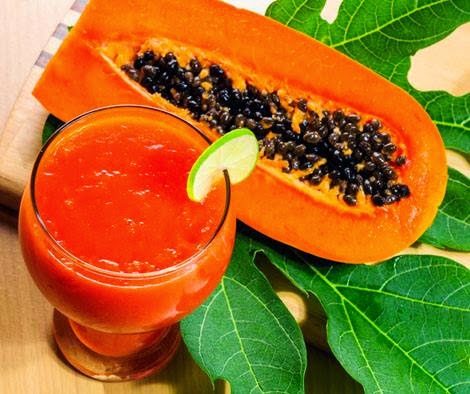

Shallot Extract Kills >90% of Leukemia Cells in Vitro: In this study, researchers purchased fresh shallots at a local market, prepared a water-extract, then observed it potently kill three types of leukemia cells (K562, Jurkat, Wehi164) in vitro after 72 hours. This super-vegetable has also shown activity against breast cancer, cervical cancer and liver cancer
Olive Extract Kills 97% of Breast Cancer Cells: Oleuropein—a natural compound found in olives—killed 97% of human breast cancer cells (MDA-MB-231) in vitro in this lab study. This study adds to a large body of research showing that olive compounds are highly active against breast cancer
Broccoli Kills >80% of Pancreatic Cancer Cells & Halts Stem Cell Growth: Broccoli is one of the richest sources of sulforaphane, a potent anticancer compound which in this study was discovered to specifically target pancreatic cancer stem cells
Oregano Essential Oil Kills 99% of Breast Cancer Cells in Vitro: Researchers have just shown that oregano oil kills >99% of human breast cancer cells at remarkably low concentrations. In fact, oregano was the most powerful of four essential oils (sage, ginseng, stevia) at killing all six different cancer cell lines tested,
Thyme Essential Oil Potently Kills Lung Cancer Cells in Vitro: Oil from the common herb thyme was discovered to kill up to 97% of human lung cancer cells (A549) in vitro. It also potently killed breast and prostate cancer cells. In fact, thyme essential oil was the most powerful at killing cancer cells out of all 10 herb and spice essential oils tested
Green Tea Starves Pancreatic Cancer Cells of Sugar
Noni Compound Kills 92% of Breast Cancer Cells
Moringa Oleifera Kills 93% of Lung Cancer
Papaya Decreases Prostate Cancer Risk by 63%:
Grape Seed Extract May Lower Cancer Risk: Taking grape seed extract could reduce risk for skin cancer risk by 74%,
Stevia Prevents 96% of Skin Cancer
Spirulina Kills 83% of Pancreatic Cancer Cells in Vitro: An extract of spirulina was just discovered to kill 83% of human pancreatic cancer cells (PA-TU-8902) and also to slow growth of pancreatic tumors
Mushrooms May Cut Breast Cancer Risk by 65%: Eating just 11 grams daily of mushrooms may cut women’s risk of breast cancer by a stunning 65% according to this study out of South Korea. More importantly, the benefit seemed to be concentrated in younger, premenopausal women, who saw a 70% risk reduction for ER
Barley Grass Inhibits 73% of Leukemia Cells in Vitro: An extract of green barley grass (Hordeum vlgare L.) powder was shown to inhibit the proliferation of human leukemia cells (Nalm-6) by up to 73% in vitro, and killed 62% of the cancer cells outright via apoptosis and necrosis. The barley grass extract also potently inhibited three other types of leukemia cells, while leaving healthy non-cancerous cells alone. What’s really interesting with this study is that the extract was prepared from a common green barley powder supplement which was purchased at an online supplement retailer in the USA. This was the first-ever study to show the anti-leukemia activity of green barley. Barley contains several unique compounds with potent anti-cancer effects such as the peptide lunacin, immune-stimulating glucans, and ribosome inactivating protein conjugates. Past studies have shown mature barley to be active against melanoma and cancers of the breast, skin, colon, liver, and lung. While mature barley contains gluten (albeit less than wheat), barley grass should be gluten-free if harvested before any seeds are produced. And since younger plants often contain much higher concentrations of healthy phytochemicals and enzymes than the mature versions, barley grass might be a highly beneficial superfood for reducing cancer risk and supporting overall health.
Blueberries Kill Breast Cancer Stem Cells, Halt Growth by 95% : This is a major discovery and further supports that #blueberries are a super-food against breast cancer. Pterostilbene, found in blueberries and grapes, has now been shown to markedly suppress breast cancer stem cells for both ER+ (MCF-7) and ER- (MDA-MB-231) breast cancers. This is important because cancer stem cells are highly resistant to normal therapies like radiation or chemo, are virtually immortal, and continue to generate more#cancer cells the longer they live. This new study also showed that pterostilbene improved the infiltration of immune cells into the tumor and reduced the cancer's ability to spread (metastasize). In another recent study, pterostilbene potently suppressed the growth of MCF7 breast cancer cells by up to 95% in vitro. Does this translate into a real benefit for women? Yes. A recent landmark study on over 75,000 nurses in the USA (Nurses' Health Study Cohort) found that postmenopausal women eating at least one serving of blueberries weekly had a stunning 31% reduction in ER- breast cancer risk. Note that one serving = 80 grams or 3 ounces, which is just over half a cup of fresh blueberries.
Blackberry Cures Oral Pre-Cancerous Lesions in Clinical Trial: This is truly a breakthrough. In this double-blind placebo controlled trial on humans which was just published days ago, patients with pre-cancerous lesions were given a gel containing 10% freeze dried blackberry powder or placebo for three months. On average, those with the blackberry saw their lesions shrink (significantly) by 26% while those on placebo saw their lesions grow by 18% (about one third of lesions grow to become cancerous). The really exciting part here is that 9% of the blackberry treated patients (2 out of 22) experienced complete regression of their lesions with their mouths returning to normal, healthy appearance. Blackberries are the most concentrated known source of anthocyanins (which are powerful anti-cancer compounds) and for that reason are now being used in five clinical trial, all against cancers (prostate, oral cancer and lung cancer). The doses range from 4 - 8 grams daily (oral cancer) up to 20 - 40 grams daily (lung cancer) of blackberry powder. Note that 10 grams of blackberry powder would be equivalent to about 80 grams of fresh or frozen blackberries, which is a standard serving size. Bottom line: blackberries are a very low-calorie, delicious way to eat healthy and probably reduce your cancer risk. They have now been clinically proven to fight oral cancer, curing it in some patients, and two more cancers are already being tested. Perhaps healthy food really is our best medicine
Whole Grains Dramatically Reduce Colon Cancer Risk >25%: In this new case-control study out of Europe, those eating the most whole wheat and/or rye bread had 52% less risk of distal colon cancer compared to those eating the least (upper vs. lower quartiles). Distal cancer makes up about 50% of all colon cancer cases, resulting in a net colon cancer reduction of >25%. This study is superior to other similar studies in that researchers measured blood levels of a key marker of whole wheat or rye consumption (alkylresorcinols) rather than relying on food frequency questionnaires which can be very inaccurate. They also separated out distal vs. proximal colon cancer cases in their analysis, since considering all colon #cancer cases together resulted in no significant protection from whole grains (except in Scandinavian countries, which saw greater overall protection from whole #grains for unknown reasons - but possibly the form in which they eat it). These differences may explain why past studies have not found large protective effects from whole grains against cancer, so it is important to follow the latest, best studies like this one. For those who cannot do wheat (like myself), the good news here is that an anti-cancer benefit is also obtained by eating whole grained #rye. And don't forget that whole grained #sourdough breads may offer yet additional anti-cancer benefits due to the peptides created in the fermentation process
Cranberries Kill >81% of Ovarian Cancer Cells & Halt Growth: An extract of cranberries rich in natural proanthocyanidins was shown to kill over 81% of human ovarian cancer cells (SKOV-3) outright and inhibit their proliferation by over 92% in vitro after 24 hours of treatment. The natural extract did this by increasing oxidative stress in the cancer cells, activating multiple signals leading to programmed cell death (apoptosis) and de-activating the cancer cells' important survival factor AKT (also known as protein kinase B). The researchers stated that these findings suggest that this#cranberry extract could be further developed to treat ovarian cancer as combination treatment or alone as a single agent. Apart from their well-known ability to help with bladder infections, cranberries have already shown potent anti-cancer activity against prostate #cancer, neuroblastoma, lung cancer, oral cancer, lymphoma, colon cancer and breast cancer in lab studies. This #Thanksgiving, go long on the cranberry sauce for your turkey, and consider dried (and unsweetened) cranberries all year long as a healthy snack alone or baked into your favourite healthy treats.
Seaweed Kills 74% of Breast Cancer Cells & Stops Angiogenesis: In the first study ever of the anti-cancer effects of the brown seaweed Sargassum Muticum, researchers found that its extract killed 74% of human ER+ breast cancer (MCF-7) cells after 72 hours by inducing programmed cell death (apoptosis) and more impressively was able to reduce angiogenesis by nearly 80% in cultured breast tumours. This is important as angiogenesis (the creation of new blood vessels to feed the tumour) is critical to the cancer's further progression. Interestingly, this seaweed - also called Japanese Wireweed - is considered a pest because it grows so quickly and is now found everywhere from Japan, China, off the coast of California, B.C. Canada, the United Kingdom, Scandinavia and the Mediterranean. The seaweed that was used for this particular studied was harvested from the waters of the Persian Gulf. One man's weed is another man's cure. This study is available free full text for those who want to see































No comments:
Post a Comment